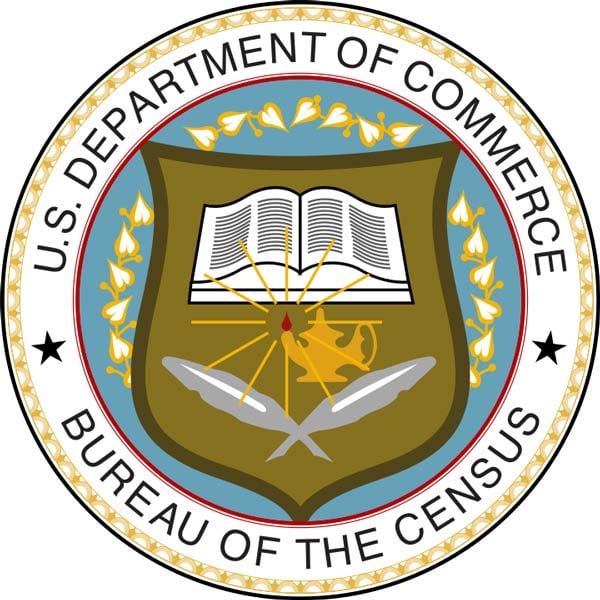
The New York Community Trust has agreed to host a New York State Grantmakers for Census Equity affinity fund, reports David Gentile in NYN Media. The foundation affinity group aims “to raise $1 to $2 million to help mobilize local and statewide efforts to make the 2020 Census accurate and fair,” said a trust spokesperson. The New York Foundation has also agreed to contribute to the fund, as have other (unnamed) funders. Patricia Swann, senior program officer at The New York Community Trust, announced the group’s formation during Philanthropy New York’s annual meeting.
As NPQ has noted, concern is mounting regarding whether the 2020 census will accurately count US residents. Early questions were raised in the spring of 2017, when John Thompson, a 27-year veteran who had led the agency since 2013, suddenly resigned. Part of the backdrop was budgetary; Republicans were pressing for the budget for the 2020 Census to be identical to 2010, even though, as a former Capitol Hill staffer told Tara Bahrampour of the Washington Post, “They’re not accounting for inflation; they’re not accounting for the 30 million more Americans, for the fact that people don’t have hard [telephone] lines anymore. And you’re going to do the census for the same amount of money? That’s not possible.”
And 2010 Census funding itself was far less than in 2000. The underfunding in 2010 led to an undercount of almost one million young children, reports Georgetown University’s Center for Children and Families. Gentile adds, “The problem appears set to worsen in 2020.”
The design of the census form also affects the count. NPQ’s Marty Levine notes that the 2010 census resulted in an estimated undercount of Latinx residents by 1.5 percent and an overcount of whites by 0.8 percent, yet the same form will be used in 2020. Gentile adds, “The Trump administration has called for changes to the 2020 Census that some believe could have devastating effects on its accuracy…These include the reinsertion of a question on citizenship status and a shift towards submitting census data online.”
In New York State alone, Gentile observes, $53 billion in federal allocations “rely on data derived from the headcount.” As for the new foundation affinity group, Gentile writes, “The New York State Grantmakers for Census Equity is currently in the process of securing verbal commitments for contributions and fleshing out its grant-making strategy.”
Sign up for our free newsletters
Subscribe to NPQ's newsletters to have our top stories delivered directly to your inbox.
By signing up, you agree to our privacy policy and terms of use, and to receive messages from NPQ and our partners.
In a statement before the House Committee on Oversight and Government Reform, Tim Delaney, president of the National Council of Nonprofits, said, “The disruptive citizenship question is a significant threat to a proper census.” Delaney adds, “Undercounts of demographic groups that charitable nonprofits serve can lead to inadequate representation and funding, which in turn increases pressure on nonprofits.”
Children are especially at risk of being undercounted. For example, the 2018 KIDS COUNT Data Book of the Annie E. Casey Foundation warns that the undercount of children under the age of five could be as high as one million.
The Casey report adds, “Around 300 children’s programs, such as the Children’s Health Insurance Program and the Special Supplemental Nutrition Program for Women, Infants and Children, received a total of $800 billion in federal funding in Fiscal Year 2015…When kids aren’t counted, communities don’t get their fair share of federal dollars for Head Start, school lunches, public health insurance, housing, child care and myriad other programs and services that help young children in low-income families get a healthy start in life.”
An undercount, Gentile notes, can also have broader political implications. The New York Community Trust points out that New York lost two congressional seats after the 2010 Census. An undercount could cause New York to lose another congressional seat in 2020, or possibly even two.
The New York State Grantmakers for Census Equity, Gentile adds, “hopes their pooled fund will allow for the strategic allocation of resources to help mitigate potential undercounts. Possible funded activities include supporting legal service offices to be ready to monitor inappropriate interactions with government employees, helping to strengthen faith-based community organizing networks, and mobilizing parents, individuals in shelters and other clients of nonprofits with the help of census navigators.”
“We can’t afford to lose any of this funding because of an inaccurate count,” says Sol Marie Alfonso-Jones, senior program officer at the Long Island Community Foundation, an affiliate of the New York Community Trust. Even an undercount of half a million, she adds, “could have serious implications.”—Steve Dubb













